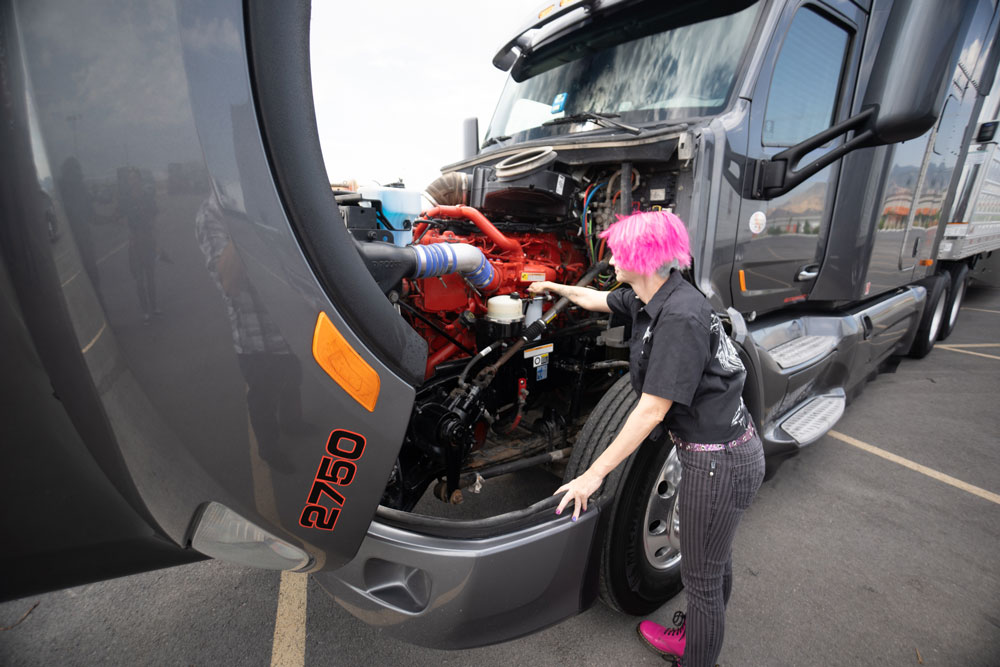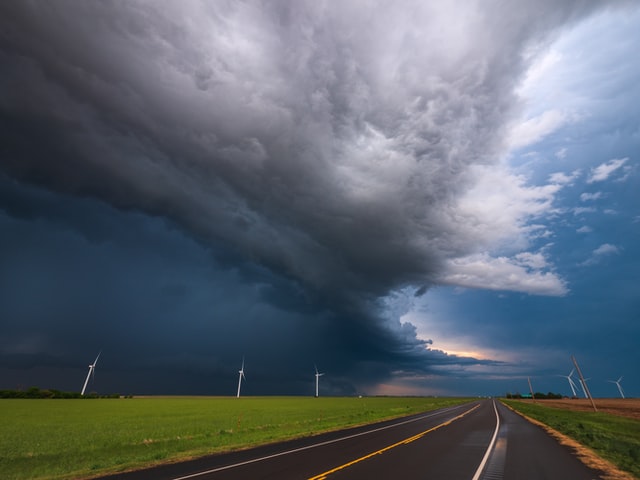by Pride Transport | Jun 11, 2021
Starting out, being new, being the fresh face at the company is never easy. There are nerves to get over, performance anxieties, and just the simple, human fear of washing out and not making it. It all comes with being the new employee, the newbie, or if you’re a circus clown, being a First of May.
The job is different from anything else you’ve experienced. It’s not a 9 to 5 situation. It’s not an office job, and it certainly isn’t the same thing day in, day out. There are elements of adventure, freedom, and being on the open road. But, there are also elements of solitude, time away from home and family, and the frustrations that come with sharing the highway with people who don’t understand what goes into driving a truck.
However, if you’re driving for a company like Pride Transport, you’re going to have an advantage. Pride drivers are given training that prepares them to drive and prepares them for a truck driver’s life. Pride drivers are given more tools, more information, so that first time drivers are more likely to succeed and thrive in the business.
If you’re a new driver and you’re facing your first year on the road, listen, pay attention, ask questions, don’t pretend you know it all just to fit in and keep safety foremost in your mind. With those ideas and some insight from vets, you should have a very positive first-year experience.
Life will change

Unless you’ve been driving a truck up to this point then, you’ve never experienced what being a truck driver is all about. Your first adjustments will be around being on the road for weeks at a time and home for a few days. Keep in mind this new schedule is going to affect you and your family. It’s a good idea to sit down and talk to family and friends, explain to them that you’re going to be on a new schedule and that time with them is going to be different. Open, honest, clear communication about the changes that will occur is vital. You want to keep your personal life as stable as possible while you navigate your life changes.
A support system of friends and family is essential when you undertake a new endeavor. Joining the men and women who keep our country supplied and moving is going to be rewarding, but there may be some bumps in the road to deal with as well. If your family and friends' support system is aware and understanding about this new change, then you’ll be able to lean on them, talk to them and turn to them when you have questions, doubts, or just need to blow off steam that comes with being the new driver.
Do what you can to minimize the changes in your life. Try to find a schedule and keep to it. Make the most of your home time. By this, we mean find time for yourself to recharge and center and give your family and friends the time with you they need to feel secure and cared for.
Keep in mind that you’re not going to get the optimum routes or schedules as a new driver. Those come with time on the road and experience. Like any job, dues are paid, and those who have experience will get attractive routes and schedules. Patience, you’ll be one of them soon enough.
What you eat
Usually, mealtime is simple; what’s in the fridge, what can I cook, that sort of thing. On the road, meals are very different. You don’t want to spend all your money at diners and restaurants; you’ll be eating up your profits and find yourself low on cash very quickly. Diners and restaurants can be a change of pace sort of situation but, not wise for them to be an everyday occurrence.
In your first year, you’ll need to learn about meal prep, making meals at home to warm up in your cab, snack tricks, and tips to avoid the food on offer at truck stops. Again, not bad once in a while, but a steady diet of tube meat that’s been on a roller since Carter was in office will lead to feeling ill and your lower intestine engaging the services of a divorce lawyer. How and what you eat will be a change that you can expect to navigate in your first year.
Since you’ll be sitting in the driver’s seat for a large portion of your day, what you eat is going to have an impact on your overall health. Being aware from the get-go of what you’re putting in your body, from food to energy drinks, will help you stay healthy and save money. Tips for better eating on the road are out there, read some, and stay ahead of the game.
Physically challenging

You’ve got your CDL, and you’ve spent time in the truck; however, the daily challenge of learning to control the truck you’re driving is going to be a physical challenge, unlike one you may have faced before.
A fully loaded truck is going to weigh in at about 80,000 pounds. That’s heavy. That’s equivalent to 45 Kodiak Bears, 32 Asian Guar, 11 hippos, two whale sharks, or one-fifth of a blue whale. All of which would undoubtedly be physically challenging to transport across the country.
A new driver is going to expect some time to get used to handling that kind of weight. Add to that weather conditions and other drivers on the road, and there is a lot to contend with for a new driver. Patience, relax, in time, you’ll make it look as easy as the vets do.
There are also the physical challenges of sitting all day. Sitting for long periods, has been said, can cause a myriad of health issues, from wasting away of large leg and gluteal muscles to diabetes and heart problems. Getting out of the truck and moving will be a challenge a new driver can expect to face.
Simple in-cab exercises, taking a walk during lunch break or before you bed down for the night. Adding awareness of your physical needs will be a part of your everyday life as a new driver. You’ll want to think about your health to stay on top of potential problems and stay fit so you can drive for a long time.
Mentally challenging
Time on the road in your first year, you’re going to miss family and, most likely, family gatherings. Schedules for new drivers are usually not great; remember, you’re paying dues. So, you may miss a birthday or holiday gathering. Prepare for that. Have alternate celebrations planned or check in on skype. Do what you can to be as connected as possible because family is vital to staying mentally well.
The life of a driver is very solitary, and in your first year, you’re going to feel that the most. Feelings of loneliness, disconnection, and even depression can appear. If you’re not prepared, these feelings can become overwhelming and may lead to mental illness. Some feelings left untreated or even spoken about can lead to quitting the job or, worse, suicide.
It’s not common, but those feelings do arise. If they do, talk to someone immediately. There’s no need to stick it out or hope it passes, loneliness is a big deal, and most people don’t experience actual loneliness daily. This may be new and a bit frightening. However, if you talk to friends, family, other drivers, you’ll discover you’re not alone, and there are paths through it.
There are ways to deal with loneliness, simple things like calling home every day—scheduling facetime when you’re away. Or bring your pet on the road with you. Touchpoints, so you know someone is always thinking about you, and you can let them know you’re thinking about them. Being on the road solo will be a new feeling that first-time drivers can expect—plan on how you’re going to deal with it before it starts to deal with you.
Can you believe this weather?


All around the country but, in particular, first time Utah drivers will experience some strange weather. It’s mercurial, and sometimes, if you’re not ready, it can be dangerous.
Most years, Utah experiences about 179 or so days without freezing temperatures. Those cold days with no snow, ice, or frost are great. However, those days can quickly change, and suddenly, you’re looking at snow in May or a first fall freeze happening in September.
There are also extreme weather changes from the valley to the mountains to contend with. From no snow to sudden piles of it as you increase elevation, it can make driving challenging and deciding when to chain up a difficult task.
Utah drivers will also have to contend with the inversion. Low hanging clouds of smog and smoke can make visibility insane. Inversion in January and February can cause streets to look wet, but, in reality, they are covered with black ice. The low temps and trapped air can turn trees into bones of ice and make streets treacherous. On top of that, you’ll be dealing with limited visibility, so as a new driver, you can expect to do some adjusting to the weather.
In the summer, drivers will have to deal with sweltering temperatures that may last for days on end. During these times, the air quality can be harmful and, if you have respiratory problems, the air quality can exacerbate those troubles.
Lightening is also a severe problem in Utah. Utah ranks 11th nationally in lightning deaths. Even more treacherous; avalanches. Something drivers in the mountainous terrain have got to be aware of. There have been more than 116 avalanche-related deaths in Utah since 1951. New drivers should be mindful of weather, road conditions, and mountain conditions during peak times. Expect to change your schedule and routes to accommodate weather-related changes.
You can handle it
The first year of a new job, be it in Utah or anywhere else, will be a bit discombobulating. You have so much to learn and to digest. Your world changes, and there are adjustments required across all facets of your life. That’s just how it is.
If you’re driving for a company like Pride, you’re lucky. Pride is owned and operated by a family of truck drivers, so they know. Anything you’re experiencing as a first-time driver, they’ve experienced it too. So, no matter what, you’re not alone.
Asking for help is not the same as complaining. As a truck driver, complaining is going to get you nowhere. Asking questions and genuinely listening will get you answers and ease your mind because you’ll see you’re not really alone.
Don’t try to go it alone. There are resources available, people to talk to, experienced drivers who are ready to help you navigate your first year. If you drive with Pride, the owners have an eye on you, and they’ll be there to help you along the way.
**Pride is in no way suggesting that these creatures are fat or out of shape; they are simply large animals.